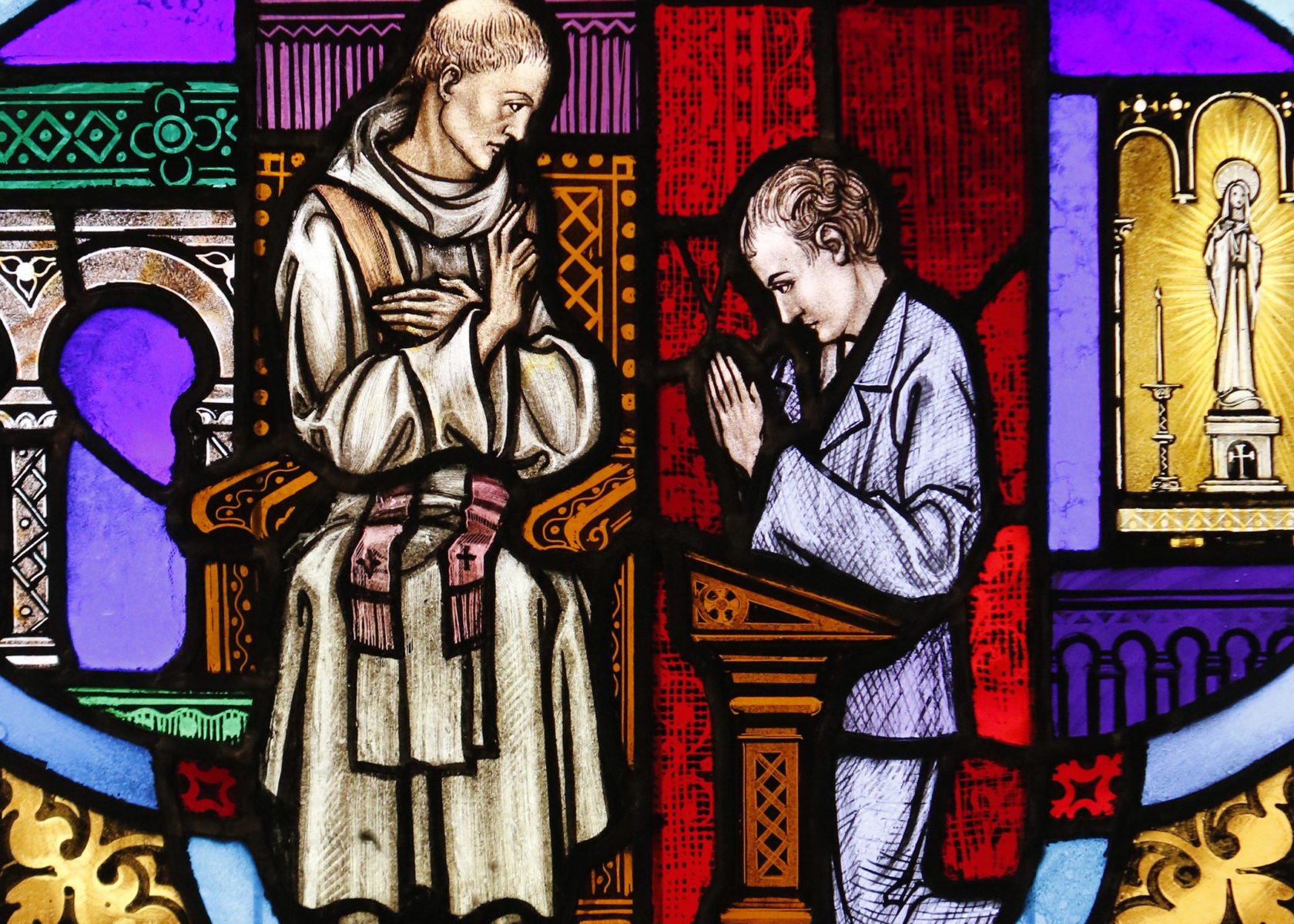The forgiveness of sins committed after Baptism is conferred by a particular sacrament called the sacrament of conversion, confession, penance, or reconciliation.
On the evening of that day, Jesus showed himself to his apostles. He breathed on them and said to them: “Receive the Holy Spirit. If you forgive the sins of any, they are forgiven; if you retain the sins of any, they are retained”
John 20:19.22-23)
The sinner wounds God’s honor and love, his own human dignity as a man called to be a son of God, and the spiritual well-being of the Church.
The movement of return to God (conversion and repentance) entails sorrow for sins and the firm purpose of sinning no more in the future. Conversion touches the past and the future.
The sacrament of Penance consists in actions of the penitent and of the priest:
- repentance
- confession, or disclosure of sins to the priest
- intention to make reparation
- absolution
One who desires to obtain reconciliation with God and with the Church, must confess to a priest all the grave sins he remembers after having examined his conscience. The confession of venial faults is not necessary, but recommended by the Church.
The spiritual effects of the sacrament of Penance are:
- reconciliation with the Church
- remission of eternal punishment
- remission, at least in part, of temporal punishments resulting from sin
- peace and serenity of conscience and spiritual consolation
- an increase of spiritual strength
For information on the sacrament of Reconciliation at Ss. Cyril & Methodius, visit this page.
In order to prepare for receiving the sacrament of Confession, examine your conscience first. You can use one of the following aids:


